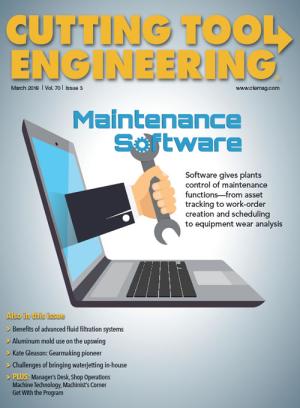Requests for company information come in many forms. Some requests are general, like a business’ hours of operation or company history. Other times, people ask for sensitive information, like financials and personal details about the owners and managers.
Complying with sensitive information requests may be necessary in some circumstances, such as when applying for an equipment loan or line of credit. Nonetheless, the company owner or a high-ranking manager should carefully vet such requests to determine if the information should be provided. Sometimes it’s possible to provide too much information, which might expose proprietary processes and technology and put a company at a competitive disadvantage. Providing the least amount of information that’s required avoids that risk while consuming less time and fewer resources.
Our shop recently received a request from an OEM seeking a quote for fabricated and machined components in sizable amounts. To provide a good bid, we worked on our response for a few weeks—ironing out many details and making sure we understood the requirements of the job.
The OEM visited our shop and received our ideas favorably, and we established a good rapport. At the time that this column was written, the order was pending but looked good. The job would be our largest single order in several years and would last a year or longer.
As part of the quoting process, the OEM understandably asked for information about our company’s history, owners, capabilities and equipment. Then, as we were closer to signing the agreement, the OEM requested credit and financial records. This also is understandable, as an OEM can’t risk giving a large project to a shop that isn’t capable or doesn’t have the necessary financial strength.
The project would involve obtaining large quantities of material, lots of freight shipments and similar purchases that require good credit. We would have to ensure smooth, efficient deliveries so the OEM could assemble the parts and ship products to its customer on time.
Although an order may become an important chunk of business for a shop, releasing sensitive records and company details has to be done carefully, with discretion, and without providing information that wasn’t requested. Owners and managers should be very picky about the information they send. Outdated, inaccurate or poorly worded items don’t make a good impression.
In our situation, our accountant recommended sending certain reports, trade references from key vendors, an endorsement letter from our bank, and an endorsement letter and letter of credit from the material supplier. I asked our accountant whether I should provide actual financial statements and personal guarantees. He pointed out that the OEM didn’t ask for those, so he advised against sending them. Besides, they contain lots of information the client doesn’t need.
Also, don’t overshare. My hobbies have nothing to do with our shop’s capabilities, so there is no need for a personal profile.
The whole matter prompted me to update a few other less-sensitive items that help inform prospective clients and are good to have at the ready, such as our equipment list, marketing materials and credit reference sheet. Keep all professional documents current, and release the confidential stuff only when necessary.


